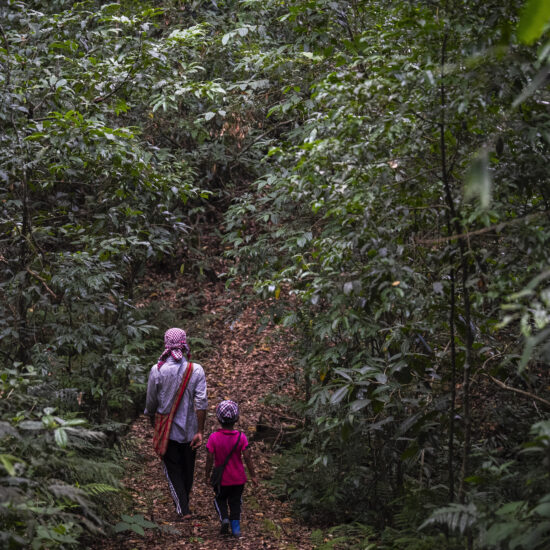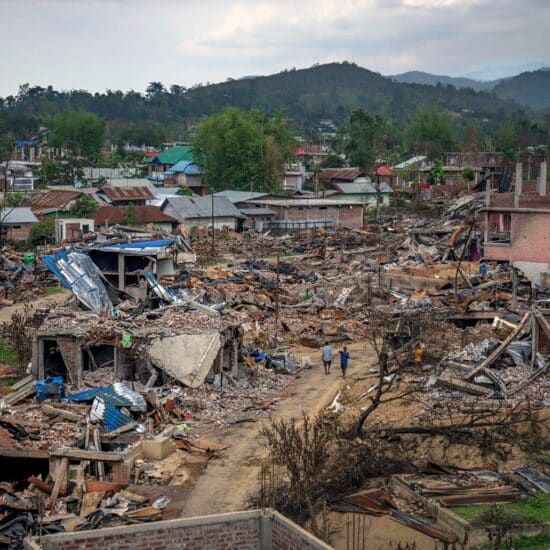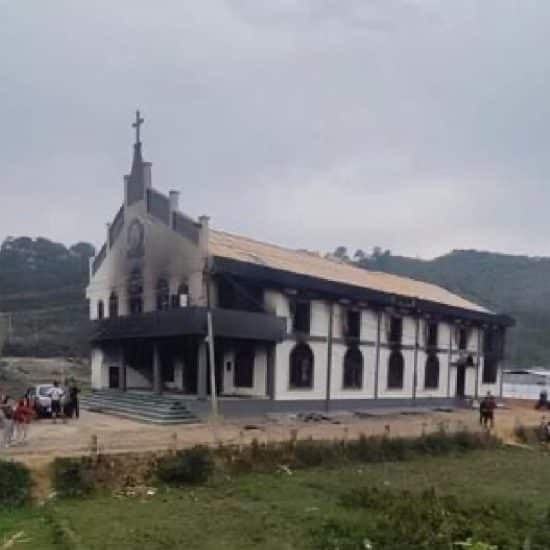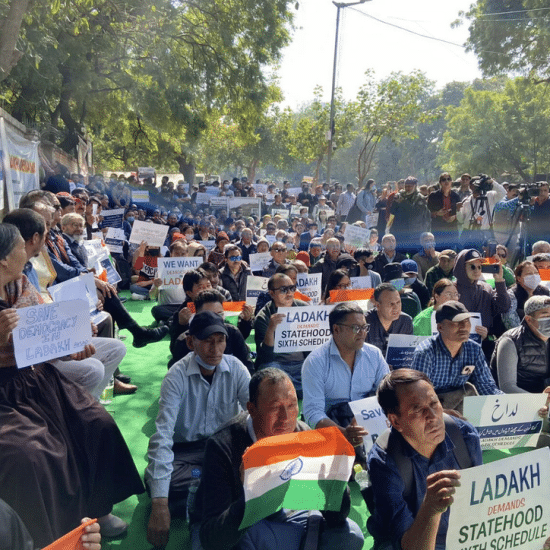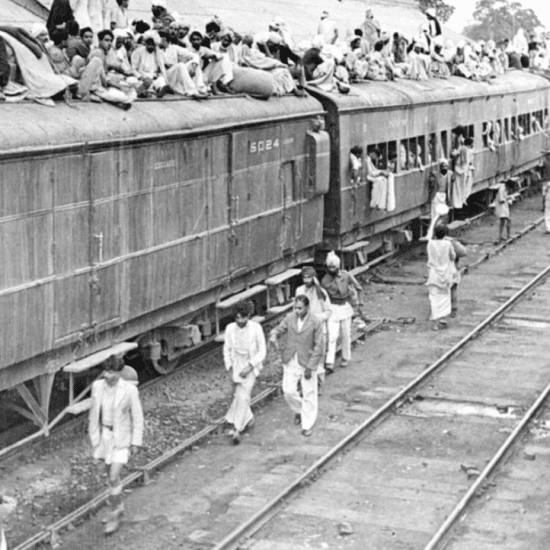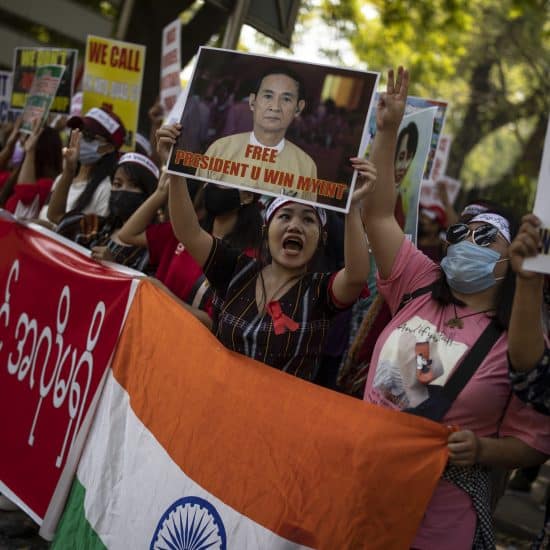A.K. Lama is the former general secretary of the Council of Baptist Churches in North East India. Now, he leads Transforming Leaders in Asia Ministries, an organization he started to train pastors in the region and beyond. Word&Way Editor Brian Kaylor interviewed Lama in Umran, India, during a TLA training conference at which they both taught.
Could you tell us a little bit about how North East India is different — particularly when it comes to faith — than other parts of India?
 A.K. LamaWell, let me take you back to the “10/40 window.” That window, if you draw the diagonal, the closest to the center of the diagonal is North East India, where the largest percentage of Christianity is located. Dates back to 1836 when God sent the missionaries all the way from America. … Because of the coming of the missionaries, who brought education and who brought medicines, the majority of the states — particularly Nagaland, Mizoram, Manipur — they are Christian states.
A.K. LamaWell, let me take you back to the “10/40 window.” That window, if you draw the diagonal, the closest to the center of the diagonal is North East India, where the largest percentage of Christianity is located. Dates back to 1836 when God sent the missionaries all the way from America. … Because of the coming of the missionaries, who brought education and who brought medicines, the majority of the states — particularly Nagaland, Mizoram, Manipur — they are Christian states.
People, anthropologically, they are much closer to China and East Asia. So, we are culturally close to Mongolian. In America, you call it Asian, but we call it Mongolian. We are Mongoloid. By race, we descend from Mongolian. So, we are slightly culturally different. Our food habit is different. And, because of the missionaries, now by faith we are different.
Slowly, in every tribe, the number of churches increased [and] they formed an association. And then missionaries brought them together into a group and they named it as Council. That is what is the Council of Baptist Churches in North East India. And, so, right now we have 7,000 churches. Ever since the missionaries left … the Lord continued to make the churches grow.
North East is just the chicken hair off the big country [of] India where we have 1.2 billion people. And majority of them — 97 percent of them — do not belong to Christian faith. Many of them have, perhaps, never heard about Jesus Christ. And others who have heard have, perhaps, somehow been persuaded and convinced only wrong things about Christianity. There have been many anti-Christian propaganda in this country.
So, pray for us. We have a big responsibility: how to win the hearts of people, not only through preaching but also through leading out. The churches have to be much more vital, dynamic — not only engaging in church planting, but also social action and charity that we not only win the souls but we also transform the society. That is our biggest challenge.
I consider the North East an epicenter of missions for India, for Bangladesh, for Bhutan, for Myanmar, for Thailand and also to the Gulf countries, perhaps. Culturally, we as Indians are much closer to the Islamic countries than rest of the world. So, we have a big mission field.
And one of the dreams that you have had there and that the organization continues to have is a college.
That was the dream that we had for a long time. And, so, I was still general secretary and the Lord opened a door, an association came together and we all resolved to launch North East Christian University.
So, that’s on now. We have found a place in Nagaland. The local churches have come together, the religious [community] has come together, the government has come together to donate more than 300 acres of land. We would certainly like the churches in America to partner with us and pray for the University to come up.
We strongly believe that with the help of American Baptist churches, this dream can be actualized. It is possible. And it will benefit not only 7,000 Baptist churches located in North East, but also another 5,000 churches that belong to other denominations as well as several thousand churches which are in Bangladesh, Thailand and Myanmar.
We desire this Baptist university to be an international university where people from different racial, ethnic and denominational backgrounds can come and be discipled and mentored and have a different kind of emphasis in their educational training. That they go back as skilled men and women of God, not only with skills but also with virtues.
I wonder if we could back the story up a bit. You did not grow up Baptist, and I wonder if you would be willing to share a little of your faith experience and coming to know Christ?
Yes, it’s interesting. My father, who was actually adopted by a Chinese Buddhist monk, he became a Buddhist disciple of the Chinese monk. They marched all the way on foot from China to India as several months they walked. They came to India and they planted a small temple that has become now a big temple. So, I was actually born to a monk, who was supposed to be a monk, he just broke his celibacy, fell in love with my mother and then he ceased to be a monk!
I’ve been born and raised as a Buddhist. But God had a different plan. When I went to study at veterinary college, I met some Christian students — they were from InterVarsity. Because of the friendship, their warm and loving hospitality, I started attending Bible studies. And that’s where I was introduced to Jesus Christ. I was convicted through studying the Bible as I was attending.
And I knew for sure that I needed Jesus. But I was still afraid — afraid of persecution. And I was not really convinced that I needed to change my religion. So, finally, it’s the Spirit of God, on 24th of October 1983, that enabled me to surrender my life. That’s how I became a follower of Jesus Christ.
So, today you lead Transforming Leaders in Asia Ministries. Could you share a little bit about what it is that you all do and the passion that you all have?
 A.K. Lama lectures on expository preaching during a TLA training conference in May in Umran, India. (Brian Kaylor/ Word&Way)By [the] second or third generation, Christianity [could move] from faith to religion. And nominalism can set in. I came from Buddhist faith. I’m first-generation Christian. By God’s grace, I’m still passionate about it. I thank God [for] the joy that I have, the joy of salvation.
A.K. Lama lectures on expository preaching during a TLA training conference in May in Umran, India. (Brian Kaylor/ Word&Way)By [the] second or third generation, Christianity [could move] from faith to religion. And nominalism can set in. I came from Buddhist faith. I’m first-generation Christian. By God’s grace, I’m still passionate about it. I thank God [for] the joy that I have, the joy of salvation.
I noticed that the large number of pastors needed a pastor, needed someone to encourage them, empower them, equip them. I saw them very much discouraged. If you have a demoralized pastor, unmotivated pastor, pastor who has just reduced in his life ministry to simply a job, then what else, what better can you expect from the church? If these 7,000 churches have to become missional churches, if these 7,000 churches have to transform the society, the church itself has to first of all undergo the transformation. And if the churches have to be transformed, then first we have to start with the pastors. Pastor himself has to be on fire.
That’s why God led us to start Transforming Leaders in Asia in 2002. … Every year, we bring three-to-four times, 60-to-80 pastors and we spend time with them, training them about the importance of developing character, virtues, taking care of their own life, how to develop spiritual discipline in their life, but also emphasize on the word of God because the power lies on the word of God. So, helping every pastor to be a good Bible student and a good Bible teacher.
Note: Word&Way’s weekly podcast “Baptist Without An Adjective” includes a longer version of this conversation (Episode 11, May 29) and a second episode (Episode 13, June 5) features short statements from several other Baptist ministers in North East India with their messages to Baptists in the U.S. Find the show at tinyurl.com/BWAApodcast.

